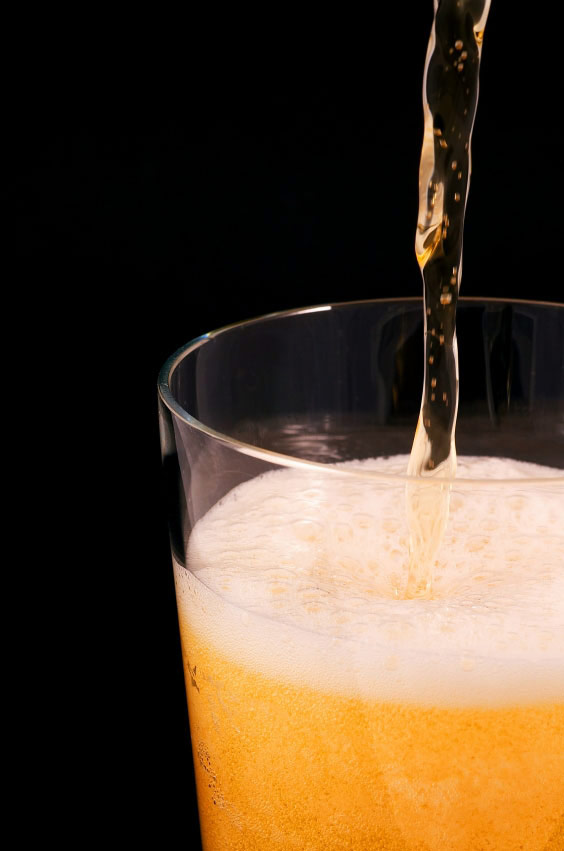How Exercise May Offset Some of Alcohol's Damage

Get the world’s most fascinating discoveries delivered straight to your inbox.
You are now subscribed
Your newsletter sign-up was successful
Want to add more newsletters?

Delivered Daily
Daily Newsletter
Sign up for the latest discoveries, groundbreaking research and fascinating breakthroughs that impact you and the wider world direct to your inbox.

Once a week
Life's Little Mysteries
Feed your curiosity with an exclusive mystery every week, solved with science and delivered direct to your inbox before it's seen anywhere else.

Once a week
How It Works
Sign up to our free science & technology newsletter for your weekly fix of fascinating articles, quick quizzes, amazing images, and more

Delivered daily
Space.com Newsletter
Breaking space news, the latest updates on rocket launches, skywatching events and more!

Once a month
Watch This Space
Sign up to our monthly entertainment newsletter to keep up with all our coverage of the latest sci-fi and space movies, tv shows, games and books.

Once a week
Night Sky This Week
Discover this week's must-see night sky events, moon phases, and stunning astrophotos. Sign up for our skywatching newsletter and explore the universe with us!
Join the club
Get full access to premium articles, exclusive features and a growing list of member rewards.
Regular exercise may counteract some of the brain-damaging effects of drinking alcohol, early results from a new study suggest.
In the study, heavy drinking was linked with damage to the brain's white matter, but only among those who didn't exercise very much. For those who exercised regularly, there was no link between heavy drinking and white-matter damage.
White matter forms "cables" in the brain that allow different areas to communicate. Because of the damage to drinkers' brains in the study, "white matter is not moving messages between areas of the brain as efficiently as normal," said study researcher Hollis Karoly, a doctoral researcher in Colorado University at Boulder's psychology and neuroscience department.
The researchers stressed the findings do not mean you can drink as much as you want as long as you exercise. Heavy drinking takes a toll on many organs in the body, not just the brain, Karoly said. And the study only looked at white matter — it's possible exercise does not ameliorate damage to other components of the brain, such as the brain's gray matter. [See 7 Ways Alcohol Affects Your Health.]
In addition, the study only looked at participants' brains at one point in time. To find the reason for the link, more research is needed that follows people over time, Karoly said. It could be that people who exercise also engage in other behaviors that improve their brain health (such as eating healthy), or that exercise over many years is needed to have some sort of protective effect, Karoly said.
The study should encourage other researchers to further investigate the connection between exercise, alcohol consumption and brain health, Karoly said. In the future, exercise might be prescribed as an adjunct to treatment for people with alcohol abuse disorders, she said.
Previous research has shown that alcohol consumption damages white matter, while exercise has benefits to the brain. The new study looking at the connection between the two "was a logical next step," Karoly said.
Get the world’s most fascinating discoveries delivered straight to your inbox.
The study involved 60 people who had their brains scanned, and answered questions about their alcohol consumption and exercise habits. Participants' drinking habits varied widely, from no drinks in the past two months to more than 300 in two months. Their exercise habits varied from no exercise in the past three months to about 420 minutes of exercise weekly.
More research is also needed to know whether the results apply to people with diagnosed alcohol disorders, Karoly said.
The study is published today (April 16) in the journal Alcoholism: Clinical & Experimental Research.
Pass it on: Exercise may protect against some of the damaging effects of heavy drinking, but that's not a free license to consume alcohol.
Follow Rachael Rettner @RachaelRettner. Follow MyHealthNewsDaily @MyHealth_MHND, Facebook & Google+. Originally published on MyHealthNewsDaily.

Rachael is a Live Science contributor, and was a former channel editor and senior writer for Live Science between 2010 and 2022. She has a master's degree in journalism from New York University's Science, Health and Environmental Reporting Program. She also holds a B.S. in molecular biology and an M.S. in biology from the University of California, San Diego. Her work has appeared in Scienceline, The Washington Post and Scientific American.
 Live Science Plus
Live Science Plus










